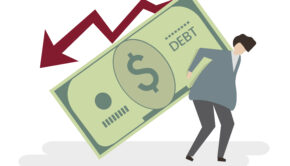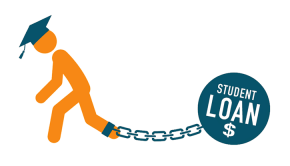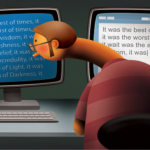The Effect of Student Loan Debt on Spending
Years ago, right at the time, we were entering the University, deans promised us they’ll teach us methods that will shape us for the challenging world we will enter one day. They promised they’ll unveil the secrets we were excited to hear, and provide us with the experience we would remember for life. However, little did they mention we’d be grabbing for the unpaid internships once we say our final goodbyes, and be left with a financial load we would be carrying through most of our career. Education comes at a high price, and its burdens are long-lasting.
How does a student loan work?
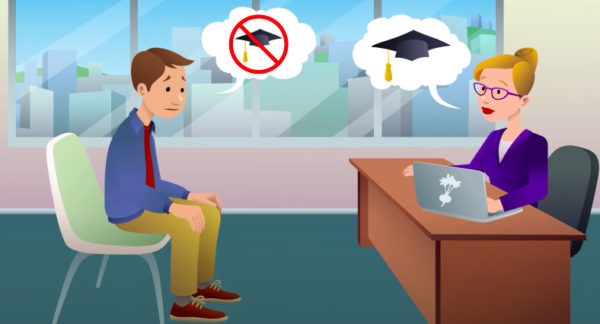
Those who weren’t lucky enough to have their money for college saved up, have to borrow money to pay it off. There are two types of student loans: federal student loans offered by the U.S. government and private student loans refreshments can take from banks, unions, and other financial institutions. Generally, it’s better to take federal loans, as they come with lower interest rates and have more benefits compared to the loans from private lenders.
But when you take a loan, we don’t just pay back the amount you borrow.
We pay back the interest as well. That said, before we take a loan it’s important to understand how much money in total we will have to pay back.
The interest we’ll have to pay depends on several factors. They depend on the amount of money we borrow, whether our loan is subsidised or not, the interest rate we agreed to, and the loan term. Usually, after graduation students are left with a hefty price for their education and struggle to pay it off for years to come.
What happens after graduation?
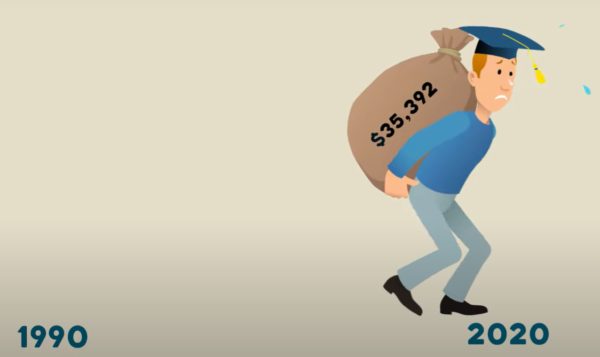
Usually, it can take some time after graduation to get accustomed to post-student lives. Contrary to our beliefs, we won’t be offered high-paying jobs right at the bat – this is reserved for a lucky few. The reality is much different for many, who’ll need to prepare for the fact they’ll have to deal with the financial debt they made before they made their first career move. Sacrificing for a greater future? It doesn’t seem merely compelling once you’re hit by the harsh reality. However, there are some steps you can take right after leaving the University:
- Take control of the loan. Once we get out of University, it’s important to be fully aware of our repayment status and balance, as it will help us determine the best option for its repayment and forgiveness.
- Be aware of our grace period. A grace period refers to the time we have (after leaving school) after which our student loans will kick in and we will have to repay them. The grace period for each student loan varies, and we have to be fully aware of it, to prepare ourselves for the future.
- Choose the right repayment option. Once our grace period lends, most of our loans will be based on a standard 10-year repayment plan. However, in case we realize this is going to be hard to manage, we still have other options to choose from. That said, it’s important to be aware of all of this and pick the repayment method we’re comfortable with.
- We need to steer clear of panic. It’s crucial to avoid panic to cope with stress as a student and after graduation. Life is unpredictable, but we shouldn’t panic even in times we feel hopeless and lost. By doing so, you will be able to control your financial situation and find better ways of reimbursing your debt. There are still ways to manage a student loan debt even if you find yourself experiencing a short-term hardship such as deferment and forbearance or income-driven repayment plans (IDR).
- Prepay when we can. We should pay more than our required monthly payment each time we feel like we can pull it off, as it will lower our interest and decrease our debt.
- Know how to repay the debt in the most effective way. Knowing the best tactic for loan repayment is half of the job. There are a few techniques of debt repayment, like the Snowball or the Avalance method, with the latter being more efficient.
The effect of student loan debt on spending
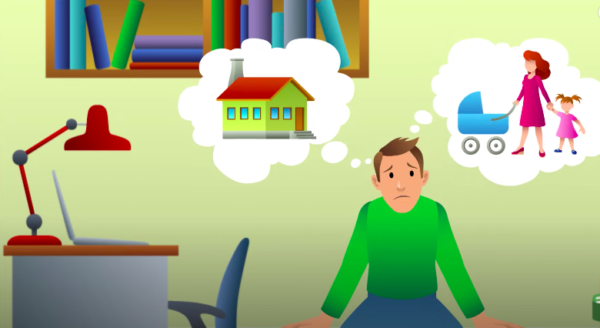
Considering what’s been already said, we see how student loans have a long-term effect on our lives. And since we have given away a considerable chunk of our money, right at the beginning of our career, when the wages are lower and there isn’t much wiggle room to buy all that we need and want, we have to be smart with our purchasing decisions. Here’s how it looks in practice:
- There are fewer home buyers. Student loan debt has a massive impact on people’s financial ability. In a survey from 2015, more than half of respondents stated the student loan was one of the top reasons that had an impact on their ability to purchase a home. The truth is, those who might have enough money to afford monthly payments are unable to meet the requirements for the minimum down payment required by many lenders.
- Many people live with their parents due to their student loan debts. While some cannot meet the requirements to purchase homes, others cannot even afford to pay the rent. That’s especially true for those living in big cities where the price of rent for a one-bedroom apartment approximately costs around $1600. According to the studies, more than 14 million people, ages between 23 to 37 are still living with their parents. Contrary to some beliefs, those people aren’t lazy – they just owe much more money than the previous generations who were able to purchase a home.
- Many people have to put their dreams on hold. The student loan debt hinders the financial independence of many people and lowers their life standard. That’s why many young people with student loan debt have to put their dreams on hold, and sacrifice a lot to repay their debt. The debt of people with student loans chains them up, making them unable to make either rash or deliberate needs that will allow them to live the life how they see it fit.
- Student loan debt lowers the credit score. Those who’re struggling to pay off their student loans might endanger their credit card score, and be filed in a higher risk category. Needless to say, a lower credit score hinders the possibility of having the quality of life we want for ourselves and impacts our purchasing decisions greatly. What’s more, it can put us even in greater debt, as interests are much higher for people with lower credit card score.
- Makes finding a job much harder. Usually, companies make background checks on prospective candidates which include credit checks. If the company we’ve applied for discovers we’re having a hard time paying off our student loan, it might endanger our chances of getting hired.
Wrapping it up
Even though they offer us a chance for acquiring knowledge, student loan debts come as a great burden and a responsibility many of us will have to take care of for the great part of their working career. It affects all aspects of our life and sets the path of sacrifice and compromise – for the things that matter to us the most.



